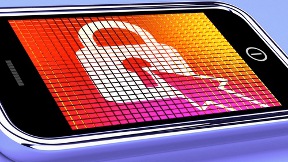
We take our offices with us when we travel, toting tablets, laptop computers, and smartphones as we meet with clients across the globe, attend seminars hundreds of miles from our offices, and train new employees in remote locations.
Our mobile devices allow us to scan the web, send and receive emails, access PowerPoint presentations, and work on company reports while we’re on the road.
That’s the good news. The bad news? Our mobile devices can also put our businesses at risk. What happens if you lose one of your devices while on the road? How much sensitive company information will you put in the hands of outsiders?
Fortunately, the staff at the Smallbiz Technology provide some important strategies that businesspeople can use to protect their mobile devices while on the road.
Protect the device
The best way to keep your company’s information and data secure? Don’t leave your tablets, smart phones, or laptops out of your sight. Always know where these devices are when you are traveling. Smallbiz Technology recommends that you store these devices in a safe when you’re staying in a hotel room.
Turn to the cloud
The cloud provides business travelers with a secure place to store their company’s reports and sensitive data. This way, even if someone steals a traveler’s laptop or tablet, they won’t find any sensitive information stored on the device. Of course, business travelers must make sure to limit access to their cloud storage with a difficult-to-guess password.
Login passwords are your friends
Smallbiz Technology recommends that business travelers protect their devices with login passwords. This way, if someone steals their device, this thief won’t be able to access the files stored on it unless they crack the password that allows them to log onto the device.
This means, of course, that business travelers must create complex passwords that consist of letters, numbers, and special characters.
Unfortunately, there is no way to completely protect your mobile devices while taking business trips. However, those travelers who follow these three simple rules will at least make it less likely that their tablets, laptops, or smartphones will fall into the wrong hands.
